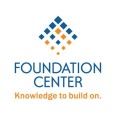When Deep Throat advised Washington Post reporter Bob Woodward to ‘follow the money’ in that underground garage back in the ’70s, he could just as well have been dispensing advice to a corporate grantseeker. That is, until recently.
For many years, individuals and organizations looking for funding from companies or their foundations were only concerned about the availability of funds and meeting a company’s grant requirements, not whether a grantmaker was a ‘good corporate citizen’ (with the exception, perhaps, of anti-apartheid activists). And while notions of corporate social responsibility (CSR) have been around for decades, CSR has only recently gained traction with the general public.
According to a 2010 CSR Perception Survey conducted by Penn Schoen Berland, 55 per cent of survey respondents said they would be more likely to purchase a product with an added social benefit; 70 per cent said they would be willing to pay a premium for a product from a ‘socially responsible’ company (and 28 per cent said they would pay up to $10 more); and, perhaps most surprisingly, 34 per cent said they would be willing to take a pay cut to work at a socially responsible firm. It would appear the CSR train is leaving the station. Indeed, in the last month alone, Morgan Stanley announced the launch of a new ‘impact investing’ platform to ‘help clients align their financial goals and personal values’, while Bloomberg LP, which already provides more than one hundred CSR indicators through its Bloomberg terminals at no extra cost, announced that it will publish the results of The Civic 100 survey conducted by the National Conference on Citizenship and Points of Light in the November issue of Bloomberg Businessweek.
Recognizing the importance of corporate social responsibility information to today’s grantseekers, the Foundation Center has been busy collecting over 40 separate CSR data points, including carbon emissions and energy usage metrics as reported to and analyzed by folks at the Carbon Disclosure Project, employee volunteer hours, workforce diversity percentages, and recognition by 11 ‘green’ or ‘best practices’ lists, including those compiled by Boston College, Corporate Responsibility magazine, DiversityInc, Human Rights Campaign, Newsweek, and Working Mother. We’re also collecting corporate CSR pledges tracked by the Global Reporting Initiative, the United Nations Global Compact, and A Billion + Change. And now we are making all that data available in Foundation Directory Online (FDO). Appearing as a separate tab on individual company profiles, more than 1400 companies will have at least one CSR measure that users of FDO can incorporate into their prospect research.
We think the addition of corporate social responsibility data to FDO is the most significant enhancement to our company information in years, and we know it will provide FDO users with the most complete profiles of corporate citizenship and transparency in any single database around. For today’s corporate grantseeker, just following the money is no longer enough.
Andrew Grabois is manager for corporate philanthropy at the Foundation Center
This post first appeared on the Foundation Center’s Philantopic blog





Comments (0)